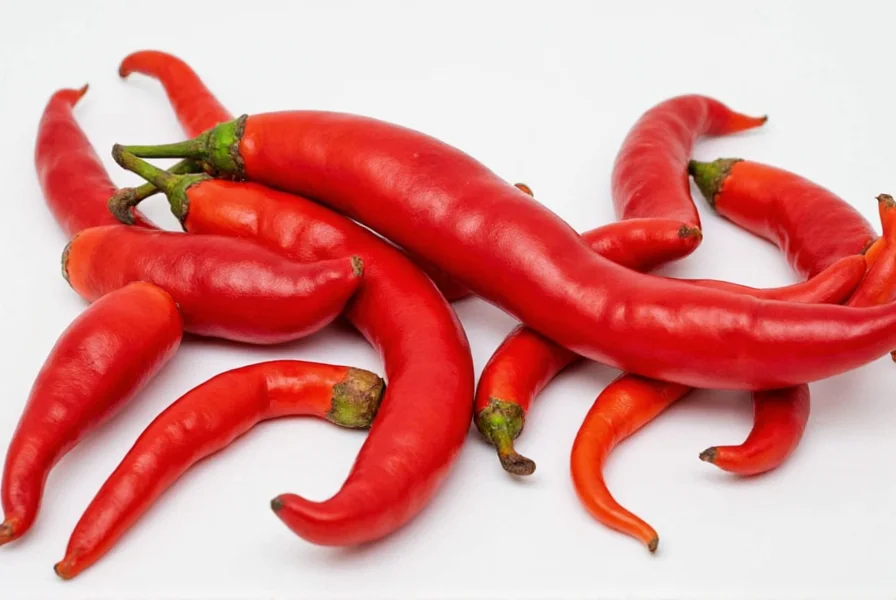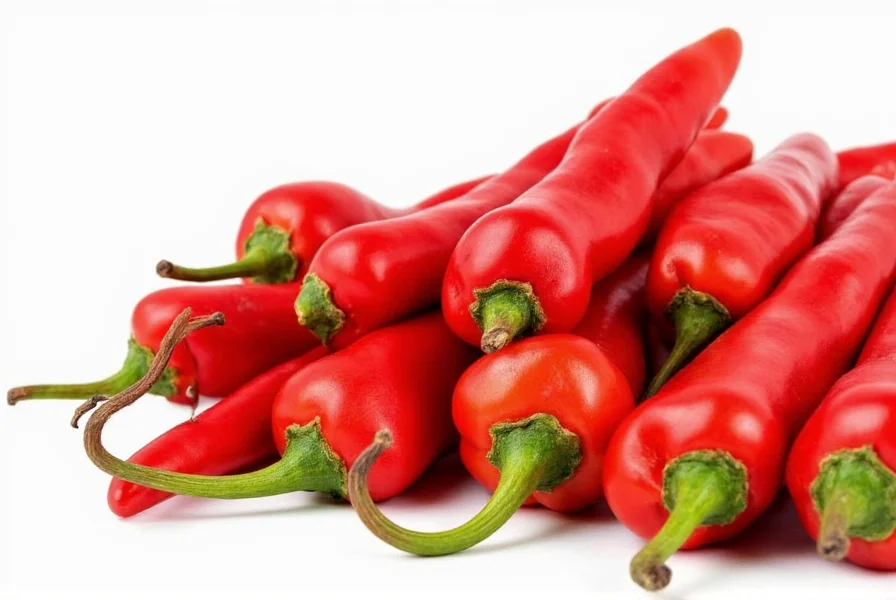Cayenne pepper supplements have gained popularity in natural health circles, but what does science actually say about their benefits? Derived from Capsicum annuum peppers, these supplements concentrate capsaicin—the compound responsible for their heat—and other bioactive components. Unlike culinary use, supplements provide standardized doses that may deliver consistent therapeutic effects.
Understanding the real potential of cayenne pepper requires separating marketing hype from evidence-based findings. While not miracle cures, these supplements show promise in specific applications when used appropriately. This article examines the scientifically supported benefits, optimal usage, and important safety considerations based on current research.
Scientifically Supported Health Benefits of Cayenne Pepper Supplements
Multiple clinical studies have investigated cayenne pepper's effects, revealing several evidence-based benefits:
Pain Management and Inflammation Reduction
Capsaicin works by depleting substance P, a neurotransmitter involved in pain signaling. Research published in the Journal of Clinical Rheumatology demonstrated that oral capsaicin supplements significantly reduced osteoarthritis pain compared to placebo. Topical applications show even stronger evidence, with the American College of Rheumatology recommending capsaicin creams as part of osteoarthritis management.
A systematic review in Pain Medicine analyzed 15 clinical trials and concluded that capsaicin supplements provide moderate short-term relief for neuropathic pain conditions. The effects typically build over 2-4 weeks of consistent use.
| Condition | Effectiveness | Recommended Dosage |
|---|---|---|
| Osteoarthritis pain | Moderate evidence | 25-120mg capsaicin daily |
| Neuropathic pain | Emerging evidence | 60-120mg capsaicin daily |
| Muscle soreness | Limited evidence | 30-60mg capsaicin daily |
Metabolic Effects and Weight Management
Capsaicin's thermogenic properties have been studied for weight management. A meta-analysis in Appetite found that capsaicin supplementation increased energy expenditure by approximately 50 calories daily and reduced appetite slightly. While not a weight loss solution by itself, it may provide modest support when combined with diet and exercise.
Research suggests cayenne pepper supplements may improve fat oxidation during exercise. A study in the European Journal of Nutrition showed participants who took 100mg of capsaicin before workouts burned 12% more fat than the control group. These effects appear most pronounced in individuals who aren't regular consumers of spicy foods.
Cardiovascular Health Support
Several studies indicate potential cardiovascular benefits from regular cayenne pepper supplementation. Research in the American Journal of Clinical Nutrition demonstrated that capsaicin may help maintain healthy blood pressure levels by promoting vasodilation. The compound appears to activate TRPV1 receptors, which regulate vascular tone.
A longitudinal study following 500,000 adults in China found that those who consumed spicy foods 6-7 days weekly had a 14% lower risk of mortality from heart disease compared to those who ate spicy foods less than weekly. While this observational study doesn't prove causation, it suggests a potential protective effect worth further investigation.
Optimal Dosage and Supplement Forms
Understanding proper cayenne pepper supplement dosage is crucial for effectiveness and safety:
Standardized Capsaicin Content
Quality supplements specify their capsaicin content, typically ranging from 0.1% to 2%. For therapeutic effects, look for products containing 30-120mg of standardized capsaicin per serving. Lower doses may provide mild metabolic benefits, while higher doses (under medical supervision) may be used for pain management.
Enteric-coated capsules help prevent stomach irritation and ensure the capsaicin reaches the intestines where it's better absorbed. This formulation reduces the burning sensation some users experience with standard capsules.

Timing and Consistency
For metabolic benefits, take cayenne supplements 30 minutes before meals or exercise. Pain management benefits typically require consistent daily use for 2-4 weeks before noticeable effects. Dividing the daily dose (e.g., 60mg twice daily) often improves tolerance compared to single large doses.
Food pairing matters—taking cayenne supplements with healthy fats (like avocado or olive oil) enhances absorption of capsaicin, which is fat-soluble. Avoid taking on an empty stomach to minimize gastrointestinal discomfort.
Potential Side Effects and Safety Considerations
While generally safe for most adults, cayenne pepper supplements can cause adverse effects:
Common Side Effects
Gastrointestinal issues represent the most frequent side effects, including heartburn, stomach pain, and diarrhea—particularly at higher doses. Starting with low doses (30mg daily) and gradually increasing helps most people build tolerance. Those with irritable bowel syndrome or acid reflux should use caution or avoid these supplements.
Skin reactions may occur with handling supplements, especially if capsules break. Wear gloves when handling and wash hands thoroughly afterward. Some users report temporary flushing or increased body temperature, which usually diminishes with continued use.
Medication Interactions and Contraindications
Cayenne pepper may interact with several medications:
- Blood thinners: Capsaicin may enhance the effects of medications like warfarin
- ACE inhibitors: May increase cough side effect common with these blood pressure medications
- Diabetes medications: May enhance blood sugar-lowering effects
Individuals with bleeding disorders, upcoming surgery, or gastrointestinal ulcers should avoid cayenne supplements. Pregnant and breastfeeding women lack sufficient research for safety recommendations, so avoidance is prudent.

Realistic Expectations for Cayenne Pepper Supplement Benefits
Managing expectations is crucial when using cayenne pepper supplements. The evidence shows modest, supportive effects rather than dramatic cures. These supplements work best as part of a comprehensive health approach rather than standalone solutions.
Quality varies significantly between brands. Look for third-party tested supplements with verified capsaicin content. Products certified by NSF International, USP, or ConsumerLab typically offer more reliable potency and purity. Avoid supplements with excessive fillers or proprietary blends that don't disclose exact capsaicin amounts.
For those seeking natural approaches to pain management, metabolic support, or cardiovascular health, cayenne pepper supplements may provide valuable complementary benefits when used appropriately. However, they should never replace prescribed treatments for serious medical conditions.
Frequently Asked Questions
What is the most effective dosage of cayenne pepper supplement for pain relief?
Research suggests 60-120mg of standardized capsaicin daily provides optimal pain relief benefits. Effects typically build over 2-4 weeks of consistent use. Start with 30mg daily and gradually increase to assess tolerance. Enteric-coated formulations reduce stomach irritation while maintaining effectiveness.
Can cayenne pepper supplements help with weight loss?
Cayenne pepper supplements may provide modest support for weight management by increasing calorie expenditure by approximately 50 calories daily and slightly reducing appetite. A meta-analysis in Appetite journal found these effects are most pronounced when combined with exercise. While not a standalone solution, they can complement comprehensive weight loss approaches.
How long does it take to feel the benefits of cayenne pepper supplements?
The timeline varies by benefit. Metabolic effects may be noticeable within days, while pain relief typically requires 2-4 weeks of consistent daily use. Cardiovascular benefits develop gradually over months of regular supplementation. Individual responses vary based on metabolism, diet, and baseline health status.
Are there any long-term risks associated with cayenne pepper supplements?
Long-term studies are limited, but research suggests cayenne pepper supplements are generally safe for extended use at recommended doses. Some users report developing tolerance to effects over time. Those with gastrointestinal conditions should monitor for symptom exacerbation. Always consult a healthcare provider before using long-term, especially if taking medications.
What should I look for when choosing a quality cayenne pepper supplement?
Look for supplements that specify capsaicin content (30-120mg per serving), third-party testing verification (NSF, USP, or ConsumerLab), and enteric coating for better absorption and reduced stomach irritation. Avoid proprietary blends that don't disclose exact amounts. Reputable brands provide transparent information about sourcing and manufacturing processes.











 浙公网安备
33010002000092号
浙公网安备
33010002000092号 浙B2-20120091-4
浙B2-20120091-4